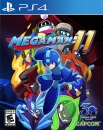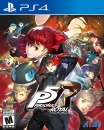This post is inspired by the recent article posted on VGC's main page concerning PlayStation CEO Jim Ryan's philosophy on nurturing creative talent, which (I'm glad!) met with wide discussion and broad approval. In the referenced interview with Stephen Totilo, Ryan said that...
"In terms of areas we have improved, I'd call out the delivery schedule for PlayStation Studios games. Nurturing creative talent is not as simple as throwing money at it. You also must give them the freedom to be creative, to take risks and come up with new ideas. Just look at Ghost of Tsushima from Sucker Punch. This was not the game we thought they were going to make, but we are not overly rigid or corporate with our talent. We want them to use our hardware as their creative palette."
He implicitly credits the company's improved first-party release schedule in recent and for upcoming years with an embrace of this philosophy, at least in part. Elsewhere in his reply to Totilo though, Ryan says some things that sound like they'd sometimes be contradictory. Namely, at one point he describes the company philosophy with respect to the PlayStation 4 era was to "put gamers first"...and also to "embrace the developer perspective". Well which is it? The reality is that consumers and content creators don't always have aligned interests and demands.
When I think of a company that "put[s] gamers first", if you will, as in providing non-stop fan service, these days I think mainly of Nintendo for a million reasons that are so self-evident they don't even need to be mentioned, and their astronomical system and first-party game sales look like it too. What you don't find a lot from Nintendo these days are a lot of Game of the Year award winners. That's because Nintendo is not known for affording content creators (or at least the ones directly on their payroll anyway) all that much creative freedom. Conversely, Sony tends to provide their content creators more leeway to make the games they want to make and often get unexpected or rather unconventional results, which gets them more Game of Year awards these days (in fact, as you can see at the link, Sony-published games won both the most GOTY awards AND the runner-up status as well last year) and in turn lends to Sony an image, I think, of often releasing more groundbreaking titles. I think that's the actual reality.
Now sometimes gamers receive creative new titles well, as in most of the cases that Ryan highlights in this interview, like Spider-Man: Miles Morales, Ghost of Tsushima, and Ratchet & Clank: Rift Apart. If we're being totally honest though, there are reasons why most of these particular examples were highlighted, which is because they were never the riskiest examples. While it certainly did take a few risks (especially narratively; I'm thinking about the ending in particular), Ghost of Tsushima was never controversial, for example. It sold exceptionally well for a new IP and generally met with even higher player review scores on MC and elsewhere than it did among critics. I'll tell you what PlayStation games I've liked the most in the last couple years: The Last of Us Part II, Death Stranding, and Returnal:
-TLOU2 appears to have lost about half the original's player base. Also broke the record for most Game of the Year awards won by a single title, among both critics and gamers themselves in player's choice awards alike.
-Death Stranding barely turned a profit. Also won the most Game of the Year awards in 2019.
-Returnal appears to be an abject commercial failure. It'll probably be Sony's strongest GOTY candidate this year, even though it's quite unlikely to actually win, I think.
These contrasts make it clear that it's not that those who play these games dislike them. Rather, it's that only so many people are willing to buy games as bold and daring as these examples in the first place (especially at a $70 price tag, but that's another issue) and give them a chance. Sony will tolerate the commercial failures if they improve the image of the company among developers with like GOTY awards and stuff, but maybe not if they get neither big sales nor big awards.
That these have been the most controversial first-party PlayStation releases in recent years also just becomes obvious pretty much any time you try and have a conversation about any of them, with detractors almost invariably pointing to the unorthodox things the particular example does rather than to the more conventional, safer things, as their points of objection. New and unorthodox lead characters. A new genre invention (or one that's rarely done in the AAA market). No strictly good/evil characters. No neat, clean happy ending. This sort of thing.
Well, I don't mean to rain on anyone's parade, I just mean to highlight that artistic advancement and capitalist economics in reality are only so compatible. Fan service has a place in the world, but what I appreciate the most are games that are from the heart. And making games that way won't always yield you the best sales. That's just a reality and truth of the world, whether it's fair or not. People like familiarity and universal appeal. It's why there are so many sequels and remakes, and why so few of them take many risks. I hope that Sony can continue to support developers even when the bold risks they may take with their creative freedom under the PlayStation umbrella don't succeed commercially. I guess that's all I really wanted to say.
Last edited by Jaicee - on 26 June 2021

















































